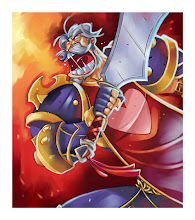Facilitator prep sheet
--Who is writing? Thomas Paine, who was a revolutionary…and I am tempted to say anarchistic.
--Who is the audience? The Colonists of America or at least those who feel oppressed by England’s tyranny. It is also referring to the English government, but only as a target.
--Who do the writers represent? Thomas Paine feels that he was representing the interests of the American Colonists. At the same time however, he was representing his own personal views over any others.
--What is being said, argued and/or requested? Thomas Paine is saying a lot, so here is a list of what I noticed:
The colonists should have declared independence 8 months earlier
That God was behind the colonists cause
That the King of England was a thief
That some guy named Howe was a bad person? (I assume reference is made to this figure in earlier installments of Common Sense)
That Paine served or at least followed the colonial forces.
That General Washington had been blessed by God.
That, “Every Tory is a coward; for servile, slavish, self-interested fear is the foundation of Toryism; and a man under such influence, though he may be cruel, never can be brave.”
Say not that this is revenge, call it rather the soft resentment of a suffering people, who, having no object in view but the good of all, have staked their own all upon a seemingly doubtful event.
--How is it being said, argued and/or requested? He aggressively denounces England, and berates Americans for not calling for independence earlier. He talks of Gen. Washington with reverence. His speaking towards the end almost sounds like he is pleading with the people of America.
--What proof and/or justification is being used to legitimize the request? He makes references to Joan of Arc, to support his claim that God would aid the colonists in rebellion. “the same remark may be made on General Washington, for the character fits him. There is a natural firmness in some minds which cannot be unlocked by trifles, but which, when unlocked, discovers a cabinet of fortitude; and I reckon it among those kind of public blessings, which we do not immediately see, that God hath blessed him with uninterrupted health, and given him a mind that can even flourish upon care.”. “I call not upon a few, but upon all: not on this state or that state, but on every state: up and help us; lay your shoulders to the wheel; better have too much force than too little, when so great an object is at stake. Let it be told to the future world, that in the depth of winter, when nothing but hope and virtue could survive, that the city and the country, alarmed at one common danger, came forth to meet and to repulse it”


No comments:
Post a Comment